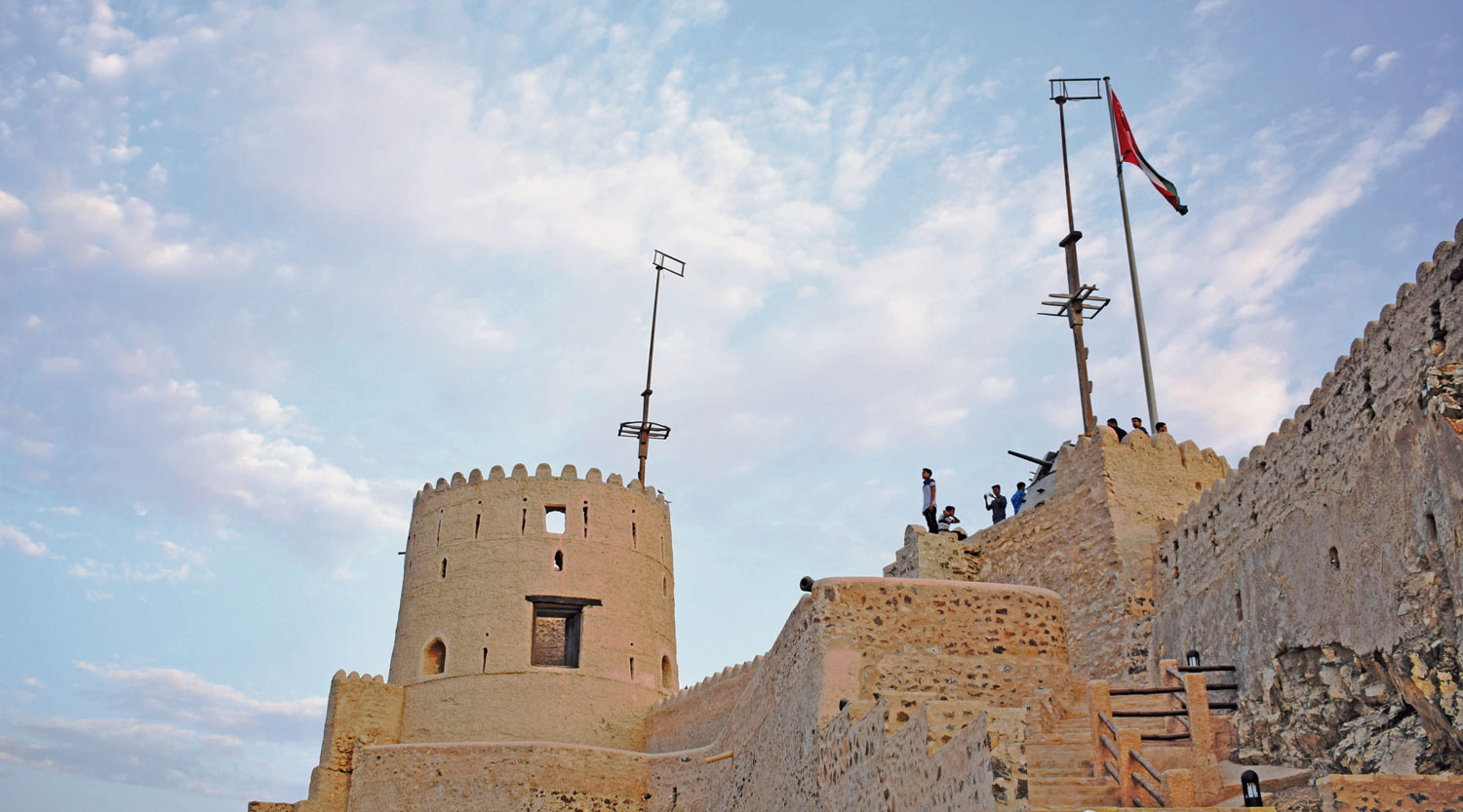

Forts dating back to the 16th century guard the coast of old Muscat dominating and complimenting the architectural and traditional past of the Sultanate of Oman. The geological stretch of ophiolite rock hills on which several forts like Jalali Fort, Minari Fort and the Muttrah Fort were all tactically built, aimed at keeping a watch over the enemy’s invasion. Now they stand tall reflecting the history welcoming visitors. Few of them are open only to significant delegates from all across the globe. These forts are the only connection between the Muscat and Muttrah of the yesteryears to that of the present.
A visitor’s delight, overlooking the whole of Muttrah and the Arabian Sea stretching as far as telescopic view covers, Muttrah Fort also known as Koot Muttrah has played a pivotal role in nation’s past. It was built by the Portuguese in their period of supremacy as a defence technique against the rampaging Ottoman army. The main purpose of the fort was for military but in many opportunities was also used as a detention centre for prisoners.
Currently, it is perhaps the perfect place to spot the beauty of the town and the sea from atop. The aerial view of the sea and Muttrah from the fort perfectly justifies the reason behind the construction of the fort on the hilltop. Least was known then in the past that it can hold an iconic view of the location.
The Fort was off limits to the public for the past few years for an extensive renovation. Since, the fort has recently been reopened and other than a few internal structural changes, the intricacies and the originality of the building has been left untouched.
The stairways have been modified for an easier and smoother climb, this paths lead to a maze of innumerable junctions – an entrance with a high ceiling further leads to another dark staircase leading to a dungeon, which is assumed to have been used to store ammunitions and food or hold captured detainees.

Moving further ahead, a display of canons is showcased. They are placed at significant points along the fort, sitting between the holes in the fort walls waiting to locate, target and attack the enemy.
The three circular towers in this monument are seen well-armed with the canons. The first tower sits at the summit, one rests at the western front and the other is perched at the north of the large tower. Multiple stairs winding up to an open platform throws light to another marvelous tower on the north of the fort near the largest tower, which graciously exhibits one of the oldest canons, a major attraction of the fort, simultaneously presenting a majestic view of the harbour, the fish market, sea road and the azure sea.
Because of its dilapidated condition and the regulations set by UNESCO that requires the full restoration of heritage structures, renovation work was carried out by Ministry in order to preserve the historical finesse of the 16th century citadel.
“These are important structures that throw light upon nation’s past and its architectural magnificence. All the forts stand guard to the history and they bridge a smooth path to the presence as major tourist attractions,” says Tawfiq Al Lawati, member at Majlis Al Shura.
The fort is an historical monument, a signifier of a time before the Muscat and Oman we know today. With the renovations almost complete and the changes although minimal, the authorities ensure safe and easier access into the buildings. Along with the old, newer facilities like a parking lot, clean washrooms inside and outside, offices have been added to make it tourist friendly.
The Muttrah Fort is a must visit on one’s to-do list promising a window into the a momentous past that helped build and create the diverse culture and traditions and ultimately the Sultanate we know today.
Swati Basu Das
axisswati@gmail.com
Oman Observer is now on the WhatsApp channel. Click here



